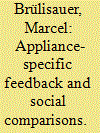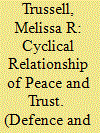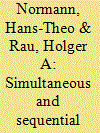| Srl | Item |
| 1 |
ID:
174986


|
|
|
|
|
| Summary/Abstract |
The provision of feedback about individual electricity consumption is a widely used approach to promote pro-environmental behavior. This form of feedback typically invokes social comparisons by informing households about their aggregate electricity consumption relative to others. While previous research has shown that aggregate consumption feedback translates into significant energy savings, the potential for further reductions may remain untapped because households lack knowledge about their appliance energy consumption patterns. In this paper, we present evidence from a field experiment, where we provide residents with feedback about their electricity consumption, specific to a high-energy use appliance (i.e. air-conditioner). We provide the relevant social norm information by varying the reference group of each resident. We find that our appliance-specific feedback is a powerful tool to curb electricity consumption. Residents significantly reduce their average air-conditioning usage by 17% in our treatment groups. Notwithstanding, our effects are not driven by comparative feedback with respect to different reference groups. We interpret this as encouraging evidence to promote the use of appliance-specific feedback to realize energy savings.
|
|
|
|
|
|
|
|
|
|
|
|
|
|
|
|
| 2 |
ID:
186523


|
|
|
|
|
| Summary/Abstract |
This paper examines many instances of the same investment game to explore the questions of how violence affects trusting and trustworthy behaviors and how those behaviors affect a country’s level of violence or peacefulness. Average responses of players in the investment game are compared across countries experiencing varying degrees of peacefulness or conflict. The primary finding is that a macroeconomic peace index can predict trusting behavior but has no effect on trustworthy behavior. Trustworthiness, on the other hand, affects peacefulness. It is necessary, then for policymakers to foster trust and trustworthiness among individuals in order to maintain peace, and they must work to rebuild macroeconomic institutions to restore trust, to repair communities, and to revitalize economies after conflict.
|
|
|
|
|
|
|
|
|
|
|
|
|
|
|
|
| 3 |
ID:
141708


|
|
|
|
|
| Summary/Abstract |
In a step-level public-good experiment, we investigate how the order of moves (simultaneous vs. sequential) and the number of step levels (one vs. two) affects public-good provision in a two-player game. We find that the sequential order of moves significantly improves public-good provision and payoffs, even though second movers often punish first movers who give less than half of the threshold contribution. The additional second step level—which is not feasible in standard Nash equilibrium—leads to higher contributions but does not improve public-good provision and lowers payoffs. We calibrate the parameters of Fehr and Schmidt’s model of inequality aversion to make quantitative predictions. We find that actual behavior fits remarkably well with several predictions in a quantitative sense.
|
|
|
|
|
|
|
|
|
|
|
|
|
|
|
|